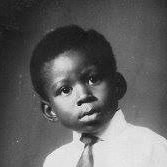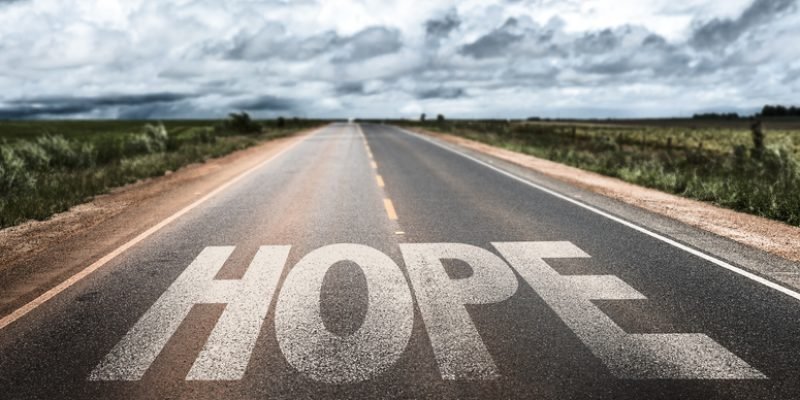This is an eerily prescient piece because it echoes the near-universal global angst about the future of planet Earth and locally, the present sense of hopelessness we feel about the future of our country Nigeria. It seems our day of reckoning has arrived as we are caught in the unrelenting grip of manifold existential crisis. We either adapt and change or… Enjoy
“Abandon all hope all ye who enter here”
Alighieri Dante’s (12th-century Italian political poet) classic might very well be a contemporary summation of a very turbulent world. Indeed, pessimism in today’s world seems so apposite, if not justified. Its justification is legion, and any critical observer of the world and its peoples and their actions would be hard-pressed to dispel what seems to be a consensus that the world is topsy-turvy.
A lot of people, even from the limited perspectives of their own particular circumstances, agree that there is a lot wrong with the world as it stands (or falls) today. A few think that something should, and can be done, about the general deterioration of life on Planet Earth, but are daunted somewhat by the complexities and interlocking paradoxes of life that manifest with each passing day.
The general image of man painted into the landscape of the world is one of hopelessness. Or perhaps a cringing inability to effect a positive change. Or even perhaps still, a general reluctance, especially by those at the helm, to steer the planet away from the treacherous reefs ahead, and into less dangerous waters.
It is becoming apparent especially when one considers the never-ending turbulence of global geopolitics that the world and its peoples are on a collision course with themselves. It seems as if humanity has a death wish it so anxiously wants to fulfil and in its fulfilment, it will inexorably drag in our planet and all its other passive non-human inhabitants.
Man, in harnessing the awesome power and energy locked in the atom, with the ingenuity of his intellect, has devised machines and methods that are capable theoretically of destroying himself…all four and a half billion of him.
The United States and the Soviet Union, between themselves and their allies, have enough nuclear warheads to destroy each other and the rest of us, many times over So the world, trailing in the wake of a mindless nuclear arms buildup is by empirical observation heading for Armageddon. And unless the current self-destructive drive is reversed, there is every probability that before long, man would have succeeded in the rationally improbable feat of actually annihilating himself. This disconcerting and terrifying fact, hanging overcast like dark sullen clouds over the whole of humanity, and its cataclysmic implications quite naturally, breeds hopelessness.
But ironically, despite the gravity of the situation, with the exception of the Western world, a large proportion of humanity is blissfully unaware of the fact that they are paid-up members of a generation that has been described as the “terminal generation”. Indeed, except for the enlightened who are privy to these grim realities, either by contiguity or by education, the probability of a nuclear holocaust is about as remote as sudden destruction of the world by ‘fire and brimstone’.
Very few people, if any at all, walk around constantly depressed by the fact that the world is sitting on a nuclear time-bomb. The urgency and demands of day-to-day living buffer and supplant that threat with more palpable ones.
For most individuals, life is like a jigsaw puzzle, with most of its parts misplaced. In trying to build up a picture from the scattered and fragmented pieces, one is often at a loss to find out which piece belongs where.
And like with actual jigsaws, it is all too easy to give in to despair after hours of pondering and searching, leaving behind a half-completed landscape. Very often also, true-life situations face us with the same mind-boggling predicament that a tortuous jigsaw presents.
And the momentary joy experienced when we discover a piece that fits, soon dissolves into despair when we realise that it is but one piece out of many. But we carry on all the same, hoping that before long, we will complete the picture.
It is that conscious effort to complete life’s pictures that can be described as hope. Hope, also, is the driving current that transforms dreams into ideas, and finally, into concrete realities. In international business circles, credit is vital and much of the world’s business is transacted on the basis of deferred payments. In life, hope is like a promissory note that can be cashed on a future date.
Much of today’s judgments and actions are based on the prognosis of tomorrow, and most of today’s problems stem from the uncertainties of tomorrow. And since tomorrow is always twenty-four hours away, it is little wonder that people prefer to live by the hour and the here and now.
As most self-styled ‘realists’ do not believe in any direct form of clairvoyance, today and now is what matters most. But the truth is you don’t have to be psychic to have a transcendental overview about life. If we take the time to stop and observe life around, we might notice some purposefulness in the flurry of activities around.
More critically, we would also observe that a lot of things are going on, independent of man’s direct supervision. Trees grow, birds chirp, and household ants can be observed scurrying off to unknown destinations. Life around us continues in spite of our personal tragedies, and the world continues even at the instance of our deaths.
The teleology of life must suggest something; perhaps the very evolution of events, and the continuity of life around us, must mean that hope itself must be irremovably entwined with life itself. And so, despite the ever-changing and ominous shapes of turmoil, tension, crisis, and stress, life as (possibly) a reaction, goes on.
People live, despite the mounting odds stacked against them, on the strength of a sometimes vague belief that things will improve. Those who do not, take the extreme measure of removing themselves totally from what they perceive as a hopeless existence. And interestingly enough, most suicides occur on the belief that by “ending it all” their lot would improve and the torture would cease…again we see echoes of some hope, even if it is of a morbid variety.
Every breath of air we inhale, apart from being by definition an inspiration, is an invigorating testimony that we all somehow believe in a better future, and possibly a better world.
Back home, dark clouds are gathering and we all wait disquietly for it to rain. We all, despite our short-sightedness, want things to improve, but are handicapped by our weaknesses and prejudices, but since we all hope (somehow), it is safe to conclude that the crisis looming over this country, as an evolutionary process, will ultimately resolve itself.
The Punch,
Saturday, August 27, 1983



